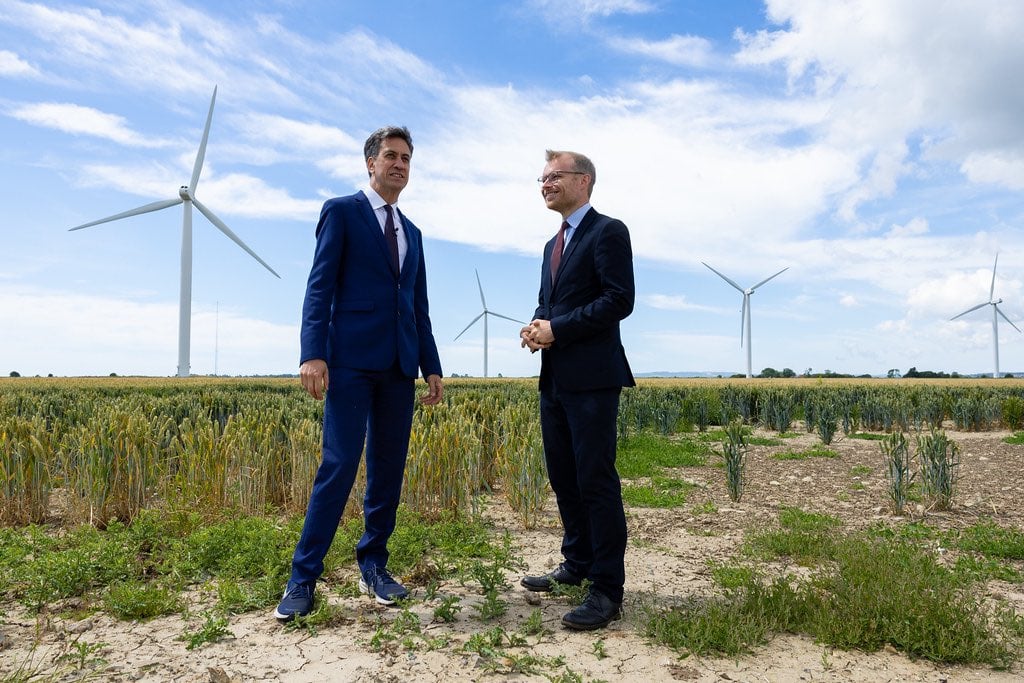Miliband and Solar Energy UK quell solar farm food security fears
 “The Government will proceed not on the basis of myth and false information, but on evidence,” said Ed Miliband (left). Image: Michael Shanks via X.
“The Government will proceed not on the basis of myth and false information, but on evidence,” said Ed Miliband (left). Image: Michael Shanks via X.
Ed Miliband has spoken out against the misconception that solar farms are a threat to national food security.
Miliband, newly-appointed Secretary of State for the Department of Energy Security and Net Zero (DESNZ), told the Commons last week (18 July) that the government will proceed “not on the basis of myth and false information, but on evidence”.
He cited estimates that ground-mounted solar took up 0.1% of UK land in 2022, saying that his recent decision to grant development consent orders (DCOs) for three major solar farms was supported by the National Farmers’ Union (NFU).
To support these points, Solar Energy UK has published a series of factsheets dispelling common arguments made against new solar developments. The trade association has set out to answer how the location of solar farms is chosen, how much disturbance to the land they cause and what evidence there is that they threaten national food security.
Solar Farms and Agricultural Land was produced with assistance from Dr Jonathan Scurlock, NFU chief adviser on renewable energy and climate change. Moreover, NFU president Tom Bradshaw backed the solar sector, saying “it is a small amount of land which is being taken out of production”.
He added: “Solar farms offer an attractive diversification income opportunity for farmers when we strike the right balance between food security and climate ambitions. National planning guidance and NFU policy both express a preference for large scale solar farm development to be located as far as possible on lower quality agricultural land, avoiding the most productive and versatile soils.”
In May, the NFU of Scotland signed an affinity deal with Iqony Solar Energy Solutions (SENS) ensuring only a marginal amount of productive farmland is used for solar installations.
The site ion factsheet notes that location is also informed by the ability to connect to the National Electricity Transmission System, irradiation levels and topography. The factsheet on agricultural land acknowledges that, according to policy, land type should not be a predominant factor in determining the suitability of a site for solar development.
The factsheets are aimed particularly at MPs, with Solar Energy UK setting the intention to “promote understanding, confidence and consistency in how planning authorities consider solar farm planning applications”.
Solar Energy UK said that false and misleading claims about the impact of solar developments were “even expressed in parliament”.
Chief utive of Solar Energy UK Chris Hewett said: “Solar farms are keeping UK farmers in business while producing some of the cheapest power there has ever been. Without them, energy bills would be even higher – for farms just as much as homes. Solar farms can provide reliable revenue, helping to keep UK farms profitable and securing domestic food supplies.”
This content was collected from the Internet. If you want to it, please contact grace solar management.